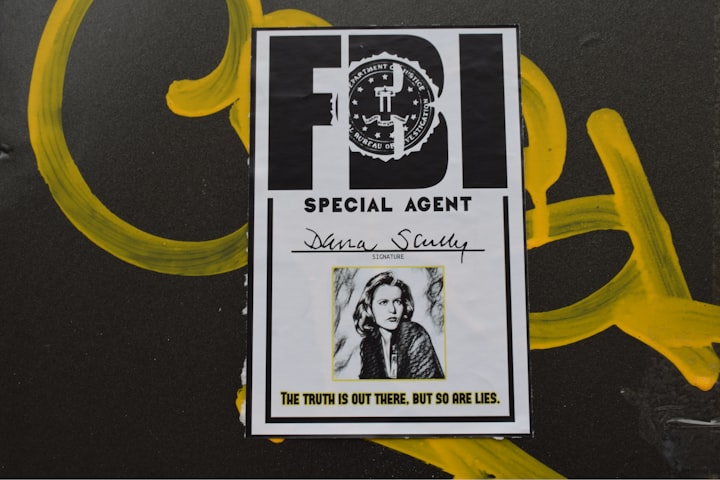The Birth of the FBI
From Humble Beginnings to Global Influence

In the annals of American law enforcement history, few agencies command the same level of reverence and respect as the Federal Bureau of Investigation (FBI). From its humble origins as a small investigative unit to its current status as a global force in the fight against crime, the FBI's journey is a testament to the vision, dedication, and perseverance of its founders. This is the story of how the FBI started and evolved into the iconic institution it is today.
The origins of the FBI can be traced back to the early 20th century, a time marked by social upheaval, political unrest, and rampant criminal activity. In response to the rising tide of organized crime, government corruption, and violent extremism, then-Attorney General Charles Bonaparte saw the need for a centralized investigative agency with nationwide jurisdiction. In 1908, he established the Bureau of Investigation within the Department of Justice, laying the groundwork for what would eventually become the FBI.
In its nascent stages, the Bureau of Investigation was a modest operation, with a small team of agents tasked primarily with investigating violations of federal law. Led by Director Stanley Finch, the Bureau focused on cases involving interstate crimes, such as bank robberies, counterfeiting, and violations of the Mann Act, which prohibited the transportation of women across state lines for immoral purposes.
Despite its limited resources and jurisdiction, the Bureau of Investigation quickly earned a reputation for its professionalism, dedication, and tenacity. Under the leadership of J. Edgar Hoover, who was appointed Director in 1924, the Bureau underwent a period of rapid expansion and transformation. Hoover, a shrewd administrator and visionary leader, recognized the potential of modern forensic techniques, scientific analysis, and proactive investigative methods in combating crime.
During Hoover's tenure, the Bureau of Investigation underwent a series of reforms and restructuring efforts aimed at professionalizing and modernizing the agency. In 1935, the organization was renamed the Federal Bureau of Investigation (FBI) to reflect its broader mandate and expanded scope of operations. Under Hoover's guidance, the FBI developed specialized units dedicated to tackling specific types of crime, such as organized crime, espionage, and domestic terrorism.
One of the FBI's most significant contributions to law enforcement was the establishment of the FBI Laboratory in 1932. Housed within the organization's headquarters in Washington, D.C., the laboratory quickly emerged as a leading center for forensic science, criminalistics, and investigative research. Its team of experts conducted groundbreaking work in ballistics, fingerprint analysis, handwriting analysis, and other forensic disciplines, revolutionizing the field of criminal investigation.
Throughout its history, the FBI has been at the forefront of some of the most high-profile criminal cases and investigations in American history. From the pursuit of notorious gangsters like John Dillinger and Al Capone to the capture of spies and saboteurs during World War II, the FBI's agents have demonstrated courage, resourcefulness, and unwavering commitment to the pursuit of justice.
One of the FBI's defining moments came during the civil rights movement of the 1960s when the organization played a pivotal role in combating racial discrimination, voter intimidation, and domestic terrorism. Under Director Hoover's leadership, the FBI investigated and prosecuted members of the Ku Klux Klan, white supremacist groups, and other hate organizations responsible for perpetrating violence and oppression against African Americans and other marginalized communities.
In the decades that followed, the FBI continued to adapt and evolve in response to emerging threats and challenges. From the fight against organized crime and drug trafficking to the investigation of cybercrime and terrorism, the FBI's mandate expanded to encompass a wide range of complex and multifaceted threats to national security and public safety.
In the wake of the September 11, 2001 terrorist attacks, the FBI underwent a significant transformation, prioritizing counterterrorism efforts and enhancing its intelligence-gathering capabilities. The establishment of the FBI's National Security Branch, the expansion of its Joint Terrorism Task Forces, and the deployment of agents overseas marked a new chapter in the organization's history, reflecting its increasingly global role in combating terrorism and protecting the homeland.
Today, the FBI stands as one of the preeminent law enforcement agencies in the world, with a presence in all 50 states and offices in over 80 countries. Its mission remains unchanged – to uphold and enforce the laws of the United States, to protect the American people and uphold their constitutional rights, and to defend the nation against foreign and domestic threats.
The legacy of the FBI is not just one of investigation and enforcement but also of innovation, integrity, and service. From its humble beginnings as a fledgling investigative unit to its current status as a global leader in the fight against crime, the FBI's journey is a testament to the dedication and sacrifice of its agents and employees. As the guardians of justice and defenders of freedom, the men and women of the FBI continue to uphold the values and principles that have guided the organization since its inception over a century ago.
About the Creator
Sahil Lathwal
I'm Sahil, a passionate writer. My voice weaves stories, emotions, and melodies into an enchanting tapestry. Welcome to my world of creativity and expression. 🎶📝🎤





Comments
There are no comments for this story
Be the first to respond and start the conversation.